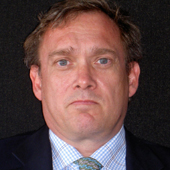Speakers Bios & Abstracts

Management Editor, The Economist,
and author
Biography
Adrian Wooldridge is the management editor and 'Schumpeter' columnist for The Economist. Before taking that position, he was The Economist's Washington bureau chief and Lexington columnist. He was educated at Balliol College, Oxford, where he got a first class degree in modern history, and All Souls College, Oxford, where he obtained a PhD. He is the author or co-author of six books. His new book, Masters of Management. How the business gurus have changed the world--for better and for worse' will be published by HarperBusiness on November 29th.
Abstract
Public Policy Effectiveness and Complexity
Wicked problems, stemming from real world complexity are increasingly taxing for governments, as the capability of governments to address them falls well short of citizens' demands. This is true in area as critical and diverse as health care, juvenile delinquency, employment, sustainability or cyber-security, for instance.
Making government's actions more strategic, in a context where complexity questions the very premises of strategic management, making these actions more responsive to multidimensional problems when complexity keeps triggering unexpected interdependencies between these dimensions, and taking action in a unitary fashion, when decades of misguided "New public management" have enforced specialization and focus, with the fragmentation of efforts that results, is the major challenge governments face today.
Public scrutiny, budgetary and debt constraints, relentless media exposure, and better informed more empowered citizens mean government actions fall well short of heightened expectations, with potential dire consequences for democracy as we know it. This calls for new organizational capabilities and leadership behaviors. In this session we bring different perspectives to bear on this renewed need for government effectiveness: Leaders in government renewal and transformation, policy makers and organizational architects and academic researchers. Our objective is to point the way toward making governments more effective in the face of complexity.
















